#national bestseller
Text
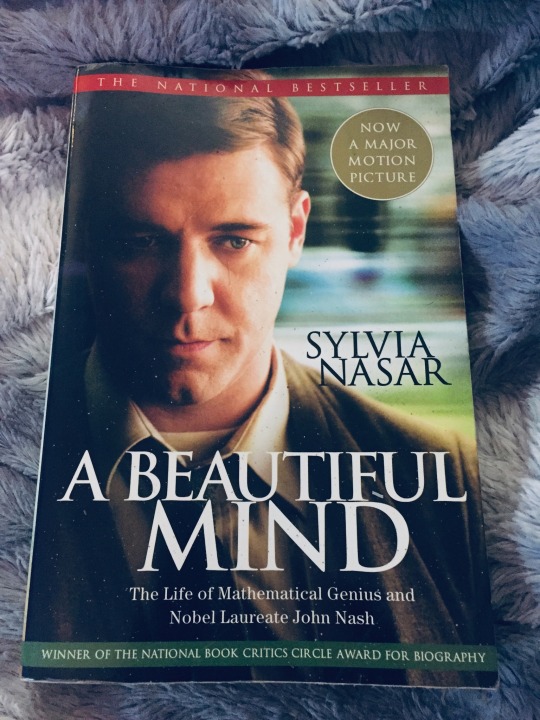

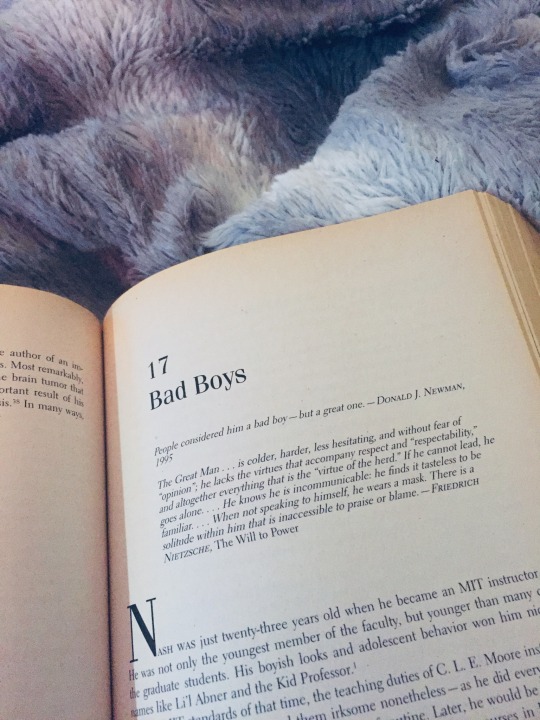

I always love a beautiful mind 😍
“His own needs, he said, were “to be free, and to be safe and for friends.” He was always, he said, “in fear of ‘death’ (Indian style) through an Armageddon with Iblis...at the Day of Judgement.” Even in these very dark hours he clung to a vision of liberation — which later became, more concretely, a wish for sexual liberation. “I’m hoping fervently to be saved (delivered) before reaching 40 in age,” he had written a few weeks before his birthday. “One cannot substitute free life and love of the 40s for the lost possibilities of the 20s and 30s and also teens.” Nash was acutely aware of the passage of time. “It does seem to me that I’ve been as if the victim of an excessively long wait for liberation...”
#a beautiful mind#explained#bookblr#books#reading#writers#authors#literature#sylvia nasar#john nash#nobel laureate#biography#genius#award winning#lit#literary#books and libraries#modern literature#national bestseller#excerpts
8 notes
·
View notes
Text
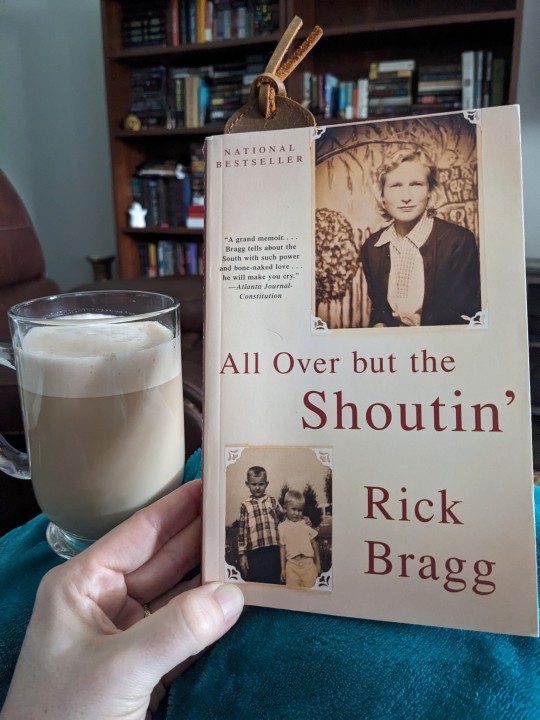
Love that feeling of starting a new book 📖!
All Over but the Shoutin' by Rick Bragg is one of my April TBR and I can't wait to get into this memoir
What about you, what are you currently reading and what's your next book? Are you a strategic planner when it comes to your TBR or do you like to get a little wild and pick at random?
0 notes
Text
WINE WITCH ON FIRE: Rising from the Ashes of Divorce, Defamation, and Drinking Too Much, by Natalie MacLean
WINE WITCH ON FIRE
Rising from the Ashes of Divorce, Defamation, and Drinking Too Much
By Natalie MacLean
I enjoyed this book so much, I thought I’d share it again!!
This National Bestseller is a great holiday read! Get it for yourself and for someone on your gift list here: https://www.nataliemaclean.com/blog/retailers-2/
More than 3.7 million wine consumers visit Natalie MacLean’s website for…

View On WordPress
#nataliemacleanwine#Natalie MacLean#national bestseller#Red White and Drunk All Over#rising from the ashes of divorce#Unquenchable#Wine Witch on Fire#wine writer
0 notes
Text
the one page short story i turned in for my creative writing class was so NOT great and i barely edited it but my teacher was so nice in the comments. got me wondering if he gives other people constructive criticism or if he only gives positive feedback to his students ?
#loquitur#BECAUSE IT WAS NOT GREAT ... AND HE WAS ACTING LIKE I JUST WROTE A NATIONAL BESTSELLER OR SOMETHING😭
6 notes
·
View notes
Text
Why Parents Still Try to Ban ‘The Color Purple’ in Schools
Four decades after it was released, Alice Walker’s enduring classic remains at the forefront of the battle over what is available on library shelves.
— By Erin Blakemore | August 22, 2023
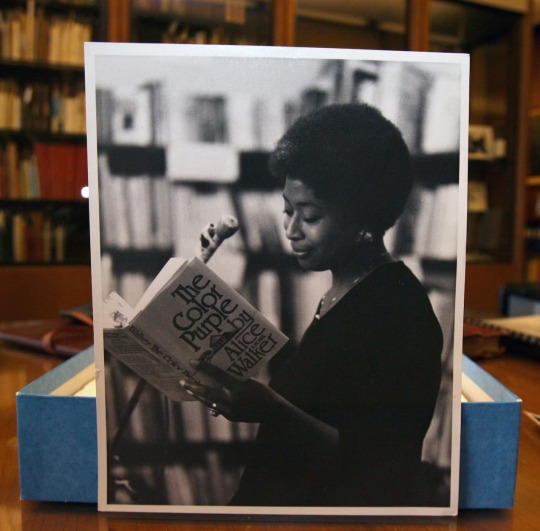
Alice Walker reads from her Pulitzer Prize- and National Book Award-winning novel, The Color Purple. Since it was first published in 1982, the critically acclaimed book has been targeted by movements pushing to censor the book's subject matter. Photograph By Johnny Crawford, Atlanta Journal-Constitution/AP
When Alice Walker’s The Color Purple hit bookshelves in 1982, it blew away critics, became a nationwide bestseller, and endeared itself to readers who found pain and inspiration in its pages.
But in the years since its publication, the acclaimed novel has become famous for another reason: It’s one of the most challenged books in the nation, withstanding criticisms aimed at its depictions of race and sex, its portrayal of abuse and agony, and even its spelling and style.
Here’s how The Color Purple became one of the nation’s most banned books—and why it continues igniting controversy to this day.
“A Spiritual Experience”
Walker, who grew up in Jim Crow-era Georgia, described writing the book as a “spiritual experience” inspired by the strength and grit of the Black Southern women she made her heroines. The epistolary epic follows 40 years in the lives of its main characters Celie, Shug, and Nettie, who survive incest, domestic abuse, and racism in the early twentieth century—all while carving out joy, independence, and dignity along the way.
When it was released in 1982, the book immediately caught the attention of both the critics and the reading public, who praised the book for its portrayals of both the brutality and sorrow of racism and sexual violence and its celebration of Black women.
It was critically acclaimed, winning both the Pulitzer Prize and National Book Award for 1983, and inspired a popular 1985 film directed by Stephen Spielberg and starring Whoopi Goldberg and Oprah Winfrey.
Banning ‘Purple’
But something else accompanied the novel as its renown grew: controversy. Though educators recognized the book’s potential as a teaching tool, some parents and community members objected to its presence in school curriculums and libraries.
The first major attempt to ban the book occurred in 1984, when a parent petitioned against its use in an Oakland, California classroom. In a 1985 essay, Walker recalled reading frequent updates on “how the banning was coming along” and watching the book’s sales skyrocket.
“I felt I had written the book as a gift to the people. All of them,” Walker wrote. “If they wanted it, let them fight to keep it, as I had to fight to deliver it.”
Fight they did. Though the Oakland schools ultimately decided not to remove the book from classrooms, the book has consistently been challenged nationwide since its publication, repeatedly making it on the American Library Association’s list of most frequently challenged books.
Why Parents Challenge the Book
Attempts to ban The Color Purple usually contest Walker’s use of slang and profanity, the book’s portrayal of brutal Black men, a same-sex encounter between the two main characters, and its depiction of sexual violence in its first pages.
“One can eat from a cafeteria or a dumpster…but one would hope those placed in charge of our children would have exercised better oversight,” wrote one parent in a characteristic 2013 challenge in Brunswick County, North Carolina. (The book has survived multiple attempted bans in the Brunswick County school district.)
But the same pages that provoke ire in some have inspired others.
Oprah Winfrey, who endured sexual abuse as a child, later recalled reading the first page of The Color Purple “and thinking ‘Oh God, I’m not alone.’” After Winfrey co-starred in the first movie adaptation of the film, she began talking about her own experiences on her talk show.
TV historians now credit the self-disclosures inspired by Walker’s book with helping Winfrey develop her winning confessional interview format.
Modern Attempts to Ban the Novel
Efforts to ban The Color Purple have continued during a recent wave of attempted book bans.
In 2022, the American Library Association documented over 1,200 attempts to ban or restrict library materials—double the number of challenges from the previous year—and most of which attempted to remove multiple titles from shelves.
Among them was The Color Purple, which was removed from library shelves in Florida’s Indian County School District at the request of a parent group that objected to 156 of the books on school shelves, claiming the books contain everything from pornography to critical race theory. Though the district’s school board declined to ban The Color Purple, it did remove five of the other books on the list and approve a permission slip allowing parents to restrict their child’s use of school library books.
With news of an upcoming movie adaptation of the acclaimed musical based on the book, The Color Purple is poised to regain the national spotlight. Only time will tell if the movie will spark more challenges—but for now, the legacy of a book one 1982 reviewer called “indelibly affecting” is secure.
To date, the book has sold over 5 million copies—a number sure to rise as a new generation meets its heroines.
#Alice Walker#The Color Purple#Schools#Erin Blakemore#Pulitzer Prize & National Book Award-Winning Novel#Published | 1982#Nationwide Bestseller#Pain | Inspiration#Criticisms | Race | Sex | Abuse | Agony | Spelling | Style#Jim Crow-Era | Georgia#Spiritual Experience#Black Southern Women | Heroines#epistolary | Epic#Characters: Celie | Shug | Nettie#Stephen Spielberg | Whoopi Goldberg | Oprah Winfrey.#Parents | Community Members | Objections#School Curriculums | Libraries.#Oakland Schools#American Library Association#Brunswick County | North Carolina#Florida’s Indian County School District#The Color Purple | 5 Million Copies Sold
8 notes
·
View notes
Text
do you think like...10-15 years post-canon kendall sometimes yells or whimpers andrew's name out in his sleep and all his househelp are like. ok weirdo. but colin knows. colin always knows.
#when colin writes his tell-all and it becomes a bestseller...colin nation rise!!#succession#succession spoilers
5 notes
·
View notes
Photo
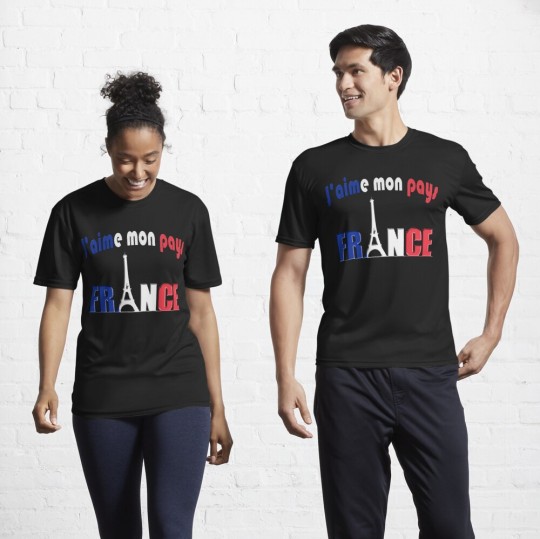
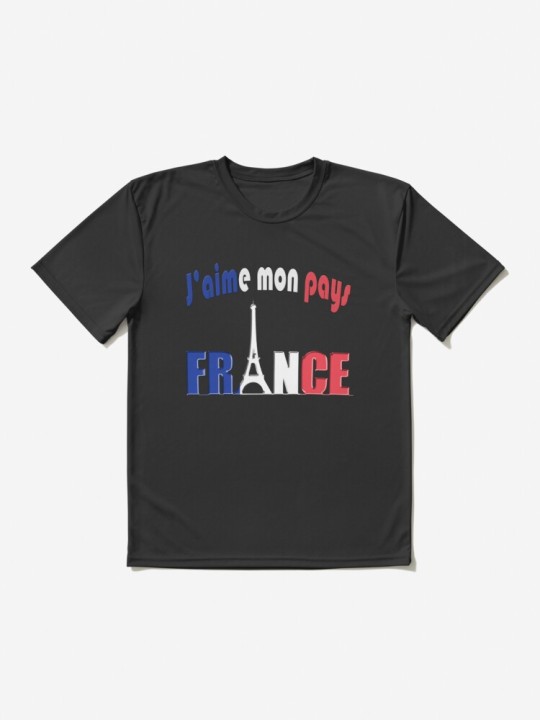

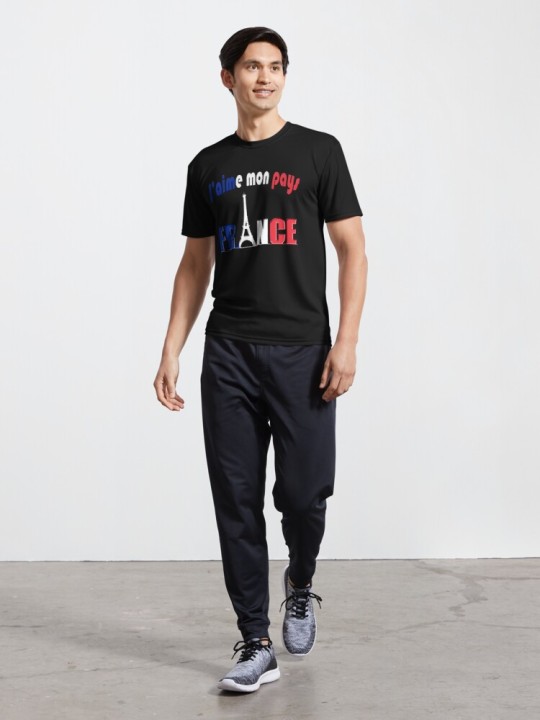


(via T-shirt respirant « T-shirt j'aime mon pays la France » par ISSABERTHE)
#findyourthing#redbubble#french#franch flag#flag#patriotism#patriotic#nation#tricolor#clothing#t-shitrt#t-shirt design#graphic design#trending#bestseller#illustration#text design#national#country
3 notes
·
View notes
Text
Terry Pratchett about fantasy ❤
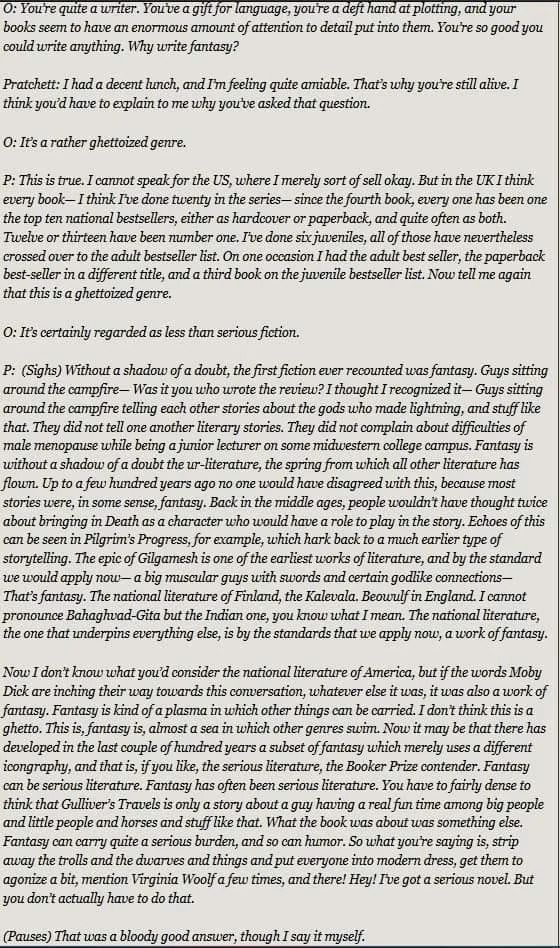
Terry Pratchett interview in The Onion, 1995 (x)
O: You’re quite a writer. You’ve a gift for language, you’re a deft hand at plotting, and your books seem to have an enormous amount of attention to detail put into them. You’re so good you could write anything. Why write fantasy?
Terry: I had a decent lunch, and I’m feeling quite amiable. That’s why you’re still alive. I think you’d have to explain to me why you’ve asked that question.
O: It’s a rather ghettoized genre.
Terry: This is true. I cannot speak for the US, where I merely sort of sell okay. But in the UK I think every book— I think I’ve done twenty in the series— since the fourth book, every one has been one the top ten national bestsellers, either as hardcover or paperback, and quite often as both. Twelve or thirteen have been number one. I’ve done six juveniles, all of those have nevertheless crossed over to the adult bestseller list. On one occasion I had the adult best seller, the paperback best-seller in a different title, and a third book on the juvenile bestseller list. Now tell me again that this is a ghettoized genre.
O: It’s certainly regarded as less than serious fiction.
Terry: (Sighs) Without a shadow of a doubt, the first fiction ever recounted was fantasy. Guys sitting around the campfire— Was it you who wrote the review? I thought I recognized it— Guys sitting around the campfire telling each other stories about the gods who made lightning, and stuff like that. They did not tell one another literary stories. They did not complain about difficulties of male menopause while being a junior lecturer on some midwestern college campus.
Fantasy is without a shadow of a doubt the ur-literature, the spring from which all other literature has flown. Up to a few hundred years ago no one would have disagreed with this, because most stories were, in some sense, fantasy. Back in the middle ages, people wouldn’t have thought twice about bringing in Death as a character who would have a role to play in the story. Echoes of this can be seen in Pilgrim’s Progress, for example, which hark back to a much earlier type of storytelling. The epic of Gilgamesh is one of the earliest works of literature, and by the standard we would apply now— a big muscular guys with swords and certain godlike connections— That’s fantasy. The national literature of Finland, the Kalevala. Beowulf in England. I cannot pronounce Bahaghvad-Gita but the Indian one, you know what I mean. The national literature, the one that underpins everything else, is by the standards that we apply now, a work of fantasy.
Now I don’t know what you’d consider the national literature of America, but if the words Moby Dick are inching their way towards this conversation, whatever else it was, it was also a work of fantasy. Fantasy is kind of a plasma in which other things can be carried. I don’t think this is a ghetto. This is, fantasy is, almost a sea in which other genres swim. Now it may be that there has developed in the last couple of hundred years a subset of fantasy which merely uses a different icongraphy, and that is, if you like, the serious literature, the Booker Prize contender. Fantasy can be serious literature. Fantasy has often been serious literature. You have to fairly dense to think that Gulliver’s Travels is only a story about a guy having a real fun time among big people and little people and horses and stuff like that. What the book was about was something else. Fantasy can carry quite a serious burden, and so can humor. So what you’re saying is, strip away the trolls and the dwarves and things and put everyone into modern dress, get them to agonize a bit, mention Virginia Woolf a few times, and there! Hey! I’ve got a serious novel. But you don’t actually have to do that.
(Pauses) That was a bloody good answer, though I say it myself.
6K notes
·
View notes
Text
Prison-tech company bribed jails to ban in-person visits
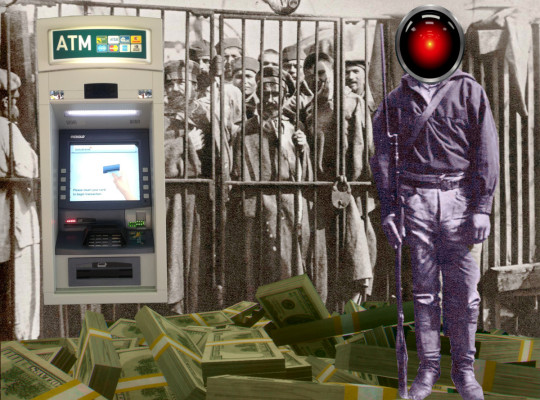
I'm on tour with my new, nationally bestselling novel The Bezzle! Catch me in BOSTON with Randall "XKCD" Munroe (Apr 11), then PROVIDENCE (Apr 12), and beyond!

Beware of geeks bearing gifts. When prison-tech companies started offering "free" tablets to America's vast army of prisoners, it set off alarm-bells for prison reform advocates – but not for the law-enforcement agencies that manage the great American carceral enterprise.
The pitch from these prison-tech companies was that they could cut the costs of locking people up while making jails and prisons safer. Hell, they'd even make life better for prisoners. And they'd do it for free!
These prison tablets would give every prisoner their own phone and their own video-conferencing terminal. They'd supply email, of course, and all the world's books, music, movies and games. Prisoners could maintain connections with the outside world, from family to continuing education. Sounds too good to be true, huh?
Here's the catch: all of these services are blisteringly expensive. Prisoners are accustomed to being gouged on phone calls – for years, prisons have done deals with private telcos that charge a fortune for prisoners' calls and split the take with prison administrators – but even by those standards, the calls you make on a tablet are still a ripoff.
Sure, there are some prisoners for whom money is no object – wealthy people who screwed up so bad they can't get bail and are stewing in a county lockup, along with the odd rich murderer or scammer serving a long bid. But most prisoners are poor. They start poor – the cops are more likely to arrest poor people than rich people, even for the same crime, and the poorer you are, the more likely you are to get convicted or be suckered into a plea bargain with a long sentence. State legislatures are easy to whip up into a froth about minimum sentences for shoplifters who steal $7 deodorant sticks, but they are wildly indifferent to the store owner's rampant wage-theft. Wage theft is by far the most costly form of property crime in America and it is almost entirely ignored:
https://www.theguardian.com/us-news/2023/jun/15/wage-theft-us-workers-employees
So America's prisons are heaving with its poorest citizens, and they're certainly not getting any richer while they're inside. While many prisoners hold jobs – prisoners produce $2b/year in goods and $9b/year in services – the average prison wage is $0.52/hour:
https://www.dollarsandsense.org/archives/2024/0324bowman.html
(In six states, prisoners get nothing; North Carolina law bans paying prisoners more than $1/day, the 13th Amendment to the US Constitution explicitly permits slavery – forced labor without pay – for prisoners.)
Likewise, prisoners' families are poor. They start poor – being poor is a strong correlate of being an American prisoner – and then one of their breadwinners is put behind bars, taking their income with them. The family savings go to paying a lawyer.
Prison-tech is a bet that these poor people, locked up and paid $1/day or less; or their families, deprived of an earner and in debt to a lawyer; will somehow come up with cash to pay $13 for a 20-minute phone call, $3 for an MP3, or double the Kindle price for an ebook.
How do you convince a prisoner earning $0.52/hour to spend $13 on a phone-call?
Well, for Securus and Viapath (AKA Global Tellink) – a pair of private equity backed prison monopolists who have swallowed nearly all their competitors – the answer was simple: they bribed prison officials to get rid of the prison phones.
Not just the phones, either: a pair of Michigan suits brought by the Civil Rights Corps accuse sheriffs and the state Department of Corrections of ending in-person visits in exchange for kickbacks from the money that prisoners' families would pay once the only way to reach their loved ones was over the "free" tablets:
https://arstechnica.com/tech-policy/2024/03/jails-banned-family-visits-to-make-more-money-on-video-calls-lawsuits-claim/
These two cases are just the tip of the iceberg; Civil Rights Corps says there are hundreds of jails and prisons where Securus and Viapath have struck similar corrupt bargains:
https://civilrightscorps.org/case/port-huron-michigan-right2hug/
And it's not just visits and calls. Prison-tech companies have convinced jails and prisons to eliminate mail and parcels. Letters to prisoners are scanned and delivered their tablets, at a price. Prisoners – and their loved ones – have to buy virtual "postage stamps" and pay one stamp per "page" of email. Scanned letters (say, hand-drawn birthday cards from your kids) cost several stamps:
https://pluralistic.net/2024/02/14/minnesota-nice/#shitty-technology-adoption-curve
Prisons and jails have also been convinced to eliminate their libraries and continuing education programs, and to get rid of TVs and recreational equipment. That way, prisoners will pay vastly inflated prices for streaming videos and DRM-locked music.
The icing on the cake? If the prison changes providers, all that data is wiped out – a prisoner serving decades of time will lose their music library, their kids' letters, the books they love. They can get some of that back – by working for $1/day – but the personal stuff? It's just gone.
Readers of my novels know all this. A prison-tech scam just like the one described in the Civil Rights Corps suits is at the center of my latest novel The Bezzle:
https://us.macmillan.com/books/9781250865878/thebezzle
Prison-tech has haunted me for years. At first, it was just the normal horror anyone with a shred of empathy would feel for prisoners and their families, captive customers for sadistic "businesses" that have figured out how to get the poorest, most desperate people in the country to make them billions. In the novel, I call prison-tech "a machine":
a million-armed robot whose every limb was tipped with a needle that sank itself into a different place on prisoners and their families and drew out a few more cc’s of blood.
But over time, that furious empathy gave way to dread. Prisoners are at the bottom of the shitty technology adoption curve. They endure the technological torments that haven't yet been sanded down on their bodies, normalized enough to impose them on people with a little more privilege and agency. I'm a long way up the curve from prisoners, but while the shitty technology curve may grind slow, it grinds fine:
https://pluralistic.net/2021/02/24/gwb-rumsfeld-monsters/#bossware
The future isn't here, it's just not evenly distributed. Prisoners are the ultimate early adopters of the technology that the richest, most powerful, most sadistic people in the country's corporate board-rooms would like to force us all to use.

If you'd like an essay-formatted version of this post to read or share, here's a link to it on pluralistic.net, my surveillance-free, ad-free, tracker-free blog:
https://pluralistic.net/2024/04/02/captive-customers/#guillotine-watch

Image:
Cryteria (modified)
https://commons.wikimedia.org/wiki/File:HAL9000.svg
CC BY 3.0
https://creativecommons.org/licenses/by/3.0/deed.en
--
Flying Logos
https://commons.wikimedia.org/wiki/File:Over_$1,000,000_dollars_in_USD_$100_bill_stacks.png
CC BY-SA 4.0
https://creativecommons.org/licenses/by-sa/4.0/deed.en
--
KGBO
https://commons.wikimedia.org/wiki/File:Suncorp_Bank_ATM.jpg
CC BY-SA 3.0
https://creativecommons.org/licenses/by-sa/3.0/deed.en
#pluralistic#prison#prison-tech#marty hench#the bezzle#securus#captive audiences#St Clair County#human rights#prisoners rights#viapath#gtl#global tellink#Genesee County#michigan#guillotine watch#carceral state#corruption
1K notes
·
View notes
Text
trotting past this together
a few chuck posts are makin the rounds today which means i am getting the usual 'chuck is my favorite author i have never read' jokes.
i have talked about how i do not really like this comment as i think there is inherent 'not taking chuck seriously as a sincere and real human' to this. some say 'i do not like erotica' but chuck writes plenty of non erotica so really i think this frequent comment is a sort of subconscious 'i am a fan of the tingleverse but could never PROUDLY be fan who actually reads his queer neurodivergent work, my appreciation MUST have a sheen of irony or winking'. nobody would ever say to stephen kings face 'i love you i am your biggest fan OF COURSE I WOULD NEVER READ YOUR BOOKS YOU GET THOUGH IT RIGHT?' anyway, really consider why you say this to chuck.
REGARDLESS it is JUST FINE buds. we are all on our own trot. i do not hold it against anyone and i understand we have our own journey. i am expressing how it makes me feel but i do not hold it against anyone who says this i have nothing but love for you buckaroos.
ALL THAT SAID since i am getting swarmed with these comments today thought it might be a good opportunity to challenge this notion. i am ONLY POSTING THIS ON TUMBLR because i think this group especially understand supporting art and artists and especially outsider queer neurodivergent arts.
if you are one of these buds who has appreciated my trot for years and never bought a book, or have made these comments without really considering what you are saying over and over again, now it the moment to REALLY support chuck with preorder of camp damascus. i have talked about WHY this timing is important here.
bud to bud, if you have the means to trot in this way and have said 'chuck is my favorite author i have never read' then what better time for the two of us to trot past this block together. NO JOKE, if just one out of ten of my tumblr followers alone preordered camp damascus it would likely hit the national bestseller lists and alter this timeline in unfathomable ways (not the least of which getting to update cover of harriet porber with a 'from national bestseller' banner).
anyway buckaroos, thank you for listening. i appreciate you so much whether you enjoy reading my tinglers or comment 'favorite author i have never read.' you ALL prove love and i cherish our trot together.
PREORDER CAMP DAMASCUS HERE
2K notes
·
View notes
Text
"Holocaust novels that have sold millions of copies both in the United States and overseas in recent years are all "uplifting," even when they include the odd dead kid. The Tattooist of Auschwitz, a recent international mega-bestseller touted for its true story," manages to present an Auschwitz that involved a heartwarming romance. Sarah's Key, The Book Thief, The Boy in Striped Pajamas, and many other bestsellers, some of which have even become required reading in schools, all involve non-Jewish rescuers who risk or sacrifice their own lives to save hapless Jews, thus inspiring us all. (For the record, the number of actual "righteous Gentiles" officially recognized by Yad Vashem, Israel's national Holocaust museum and research center, for their efforts in rescuing Jews from the Holocaust is under 30,000 people, out of a European population of at the time of nearly 300 million - or .001 percent. Even if we were to assume that the official recognition is an undercount by a factor of ten thousand, such people remain essentially a rounding error." In addition to their wonderful non-Jewish characters, these books are almost invariably populated by the sort of relatable dead Jews whom readers can really get behind: the mostly non-religious, mostly non-Yiddish-speaking ones whom noble people tried to save, and whose deaths therefore teach us something beautiful about our shared and universal humanity, replete with epiphanies and moments of grace. Statistically speaking, this was not the experience of almost any Jews who endured the Holocaust. But for literature in non-Jewish languages, that grim reality is both inconvenient and irrelevant."
- Dara Horn, People Love Dead Jews: Reports from a Haunted Present
572 notes
·
View notes
Text
Arches National Park Adventure t shirt
#tshirt#shirt#casual#t shirt#popular#bestseller#trending#menfashion#unisex#womenfashion#printed#design#graphictshirts#styleinspiration#style inspiration#outfit#ootd#vintage t shirt#funny shirt#Arches National Park Adventure t shirt#arches national park#utah
1 note
·
View note
Text
On Power, and on Powering Through, and Why They’re Really Not the Same
I don’t pay much attention to personal attacks in reviews. It comes as the flipside of success; an attempt by the critic to puncture what they see as too much success. But I still remember one review, just after the film of Chocolat, when two of my novels happened to be in the Top 5 at the same time, in which a (male) newspaper critic referred to me dismissively as a premenopausal woman writer. I was a little taken aback. Clearly, it was meant to disparage, but I was only 35, ten years away from the perimenopause. What exactly did he mean? It wasn’t a comment about the book (which I doubt he had even read). The obvious misogyny aside, it seemed to express resentment, not of my books, but of me, myself, my right to take up space in his world. That word – premenopausal – was at the same time a comment on my age, my looks, my value, and a strong suggestion that someone like me shouldn’t be this successful, shouldn’t be writing bestsellers, shouldn’t be so – visible.
I don’t recall the name of the man, or the paper for which he was writing. He was far from being the only journalist who felt I didn’t deserve success. I shrugged off the unpleasant comment, but he’d meant it to hurt, and it did. I still wonder why he – and his editor - thought that was appropriate. I also wonder why, 20 years on, women are still dealing with this kind of thing. It’s still not enough for a woman to be successful in her chosen field. Whatever her achievements, you can be pretty sure that at some point, some man in his 50s or 60s – maybe an Oxbridge graduate, author of an unpublished novel or two - will offer his opinion on her desirability, either in the national Press, or most likely nowadays, by means of social media. The subtext is clear: women who don’t conform to societal values of what a woman should be are asking for this kind of treatment; especially those who dare to achieve more than their detractors.
10 years after that nasty review, I finally began the journey into perimenopause. No-one told me it was happening. No-one in the media was talking about it at the time. Even my doctor never thought to mention that my symptoms – the insomnia, headaches, mood swings, anxiety, depression, sleep paralysis, hair loss, brown patches on my skin – might have a single origin. I began to feel I was losing my mind: as if I were starting to disappear. I started to doubt my own senses. I blamed it all on the stress from my job. My mother had powered through menopause – or so she led me to believe – and made no secret of her contempt for modern women who complained, or treated the symptoms as anything more than a minor inconvenience.
And so I did the same. I powered through; and when at last I began to experience the classic symptoms of menopause - irregular bleeding, hot flushes, exhaustion, night sweats so bad that I would awake in sheets that were wringing wet – it did not occur to me to seek help. After over a year of this, I finally went to my doctor, who took a few tests, cheerfully announced I was menopausal, and when I inquired after HRT, advised me to power through – that phrase again - and let Mother Nature take her course. The internet was slightly more helpful. I took up running, lost weight, cut down on alcohol, downed supplements and sleeping pills and vitamin D, and felt a little better. Then, breast cancer came to call, and by the time my treatment was done, the symptoms had more or less disappeared, or at least had been superseded by the symptoms of chemo. I congratulated myself at having powered through cancer as well as surviving menopause.
But two years later, I feel old. I look that way, too. I’ve aged ten years. Some of that’s the cancer, of course. I was quite open about my treatment when I was powering through it – partly in order to pre-empt any questions about my hair loss or any of the all-too visible effects of three courses of chemo. Not that it stopped the comments, though. Even at my lowest ebb, a sector of social media made it clear that my only concern should be to look young and feminine to anonymous men on Twitter.
Right now, I don’t feel either. My hair has gone grey and very thin. My skin, too, seems thinner; both physically and mentally. At a recent publishing event, several acquaintances failed to recognize me; others just looked through me as if I had become invisible. Invisibility would be a relief; I find myself dressing for camouflage. I tend to wear baggy black outfits. I got my OBE last week. Photographs in the Press show me talking to Prince William. I’m wearing a boxy black trouser suit, flat shoes and a red fedora. I think I look nice. Not glamorous, but comfortable; quirky; unpretentious.
On a thread of largely supportive messages, one Twitter user pops up to say: Jesus, who’d accept an honour looking like that middle-aged disaster? @Joannechocolat thought she’d make an impact? She needs a stylist. If you look in the dictionary for the definition of “dowdy”, it features this photo.
It’s not the same man who belittled me over 20 years ago. But the sentiment hasn’t changed. Regardless of your achievements, as a woman, you’ll always be judged on your age and fuckability. I ought to be used to this by now. But somehow, that comment got to me. Going through menopause isn’t just a series of physical symptoms. It’s how other people make you feel; old, unattractive, and strangely ashamed.
I think of the Glass Delusion, a mental disorder common between the 14th and 17th centuries, characterized by the belief that the sufferer was made of glass. King Charles VI of France famously suffered from this delusion, and so did Princess Alexandra Amélie, daughter of Ludwig 1st of Bavaria. The condition affected mostly high-profile individuals; writers, royals, intellectuals. The physician to Philip II of Spain writes of an unnamed royal who believed he was a glass vase, which made him terribly fragile, and able to disappear at will. It seems to have been a reaction to feelings of social anxiety, fear of change and the unknown, a feeling both of vulnerability and invisibility.
I can relate. Since the menopause, I’ve felt increasingly broken. I don’t believe I’m a glass vase, and yet I know what it feels like to want to be wrapped in a protective duvet all day. I’ve started buying cushions. I feel both transparent, and under the lens, as if the light might consume me. On social media, I’ve learnt to block the people who make mean comments. To make myself invisible. To hide myself in plain sight. I power through, but sometimes I think: why do women power through? And who told them that powering through meant suffering in silence?
Fortunately, some things have changed since I went through the menopause. Over the past few years, we’ve seen more people talking about their experiences. Menopause is likely to affect half the population. We should be talking about it. If men experienced half these symptoms, you bet they’d be discussing it. Because power isn’t silence. You’d think that, as writer, I would have worked that out sooner. Words are power. Sharing is strength. Communication breaks down barriers. And sometimes, power means speaking up for those less able to speak for themselves.
I look at myself in the mirror. I see my mother’s mouth; my father’s eyes. I see the woman I used to be; the woman I will one day become. I see the woman my husband loves, a woman he still finds attractive. A woman with a grown-up child who makes her proud every single day. A menopausal woman. A cancer survivor. A woman who writes books that make other people sit up and think. A woman who doesn’t need the approval of some man she’s never met to be happy. She can be happy now. I can. And finally, I understand. Powering through isn’t about learning to be invisible. It isn’t about acceptance, or shame, or letting Nature take its course, or lying about feeling broken. It’s looking beyond your reflection. It’s seeing yourself, not through the lens of other people’s expectations, but as yourself. The sum of everything you’ve been; of everyone who loves you. Of claiming your right to be more than glass, or your reflection in it. The right to be valued. The right to shine, regardless of age or reproductive status. Men seldom question their own right to these things. But women have to fight for them. That’s why it’s so exhausting.
This morning, instead of putting on my usual baggy black sweatshirt, I chose a bright yellow pullover. I looked at myself in the mirror. It’s not a great colour on me now, but it feels like dressing in sunshine. My husband came into the bathroom. You look –
My husband rarely gives compliments. I can’t remember the last time he commented on how I was dressed. I wondered what he was going to say. Dowdy, perhaps? Inappropriate? Like a menopausal woman in dire need of a stylist?
At last, he said: When you smile like that, you look like a friendly assassin.
A friendly assassin. I’ll take that.
Shining like the sun. That’s me.
2K notes
·
View notes
Text

Queer Ducks (and Other Animals): The Natural World of Animal Sexuality
Eliot Schrefer with Jules Zuckerberg
This groundbreaking illustrated YA nonfiction title from two-time National Book Award finalist and New York Times bestselling author Eliot Schrefer is a well-researched and teen-friendly exploration of the gamut of queer behaviors observed in animals.
A quiet revolution has been underway in recent years, with study after study revealing substantial same-sex sexual behavior in animals. Join celebrated author Eliot Schrefer on an exploration of queer behavior in the animal world—from albatrosses to bonobos to clownfish to doodlebugs.
In sharp and witty prose—aided by humorous comics from artist Jules Zuckerberg—Schrefer uses science, history, anthropology, and sociology to illustrate the diversity of sexual behavior in the animal world. Interviews with researchers in the field offer additional insights for readers and aspiring scientists.
Queer behavior in animals is as diverse and complex—and as natural—as it is in our own species. It doesn’t set us apart from animals—it bonds us even closer to our animal selves.
#queer history#queer#lgbt#lgbt history#gay history#lesbian history#transgender history#transgender#making queer history#queer books#lgbt books
990 notes
·
View notes
Text
I really hope Jack Edwards chokes. "Oh look we made Dostoevsky number one bestseller on Amazon!" as if that fucking guy needed any hype. Maybe you can spend all this time and energy promoting books and authors that truly are not represented? I don’t know, make a video on Georgian literature, spend hours trying to find at least one English translation of the biggest Lithuanian authors? Of course, it’s going to be hard, all of the money was spend on English translations of Russian authors and all of us had only last 33 years trying to do anything to promote our culture while you all were simping for chauvinists, who hated the bare existence of us. Google at least the names of prominent Polish and Latvian authors. What are their names? What were they writing about? Could they afford to write about some highly intellectual suffering while their nations were balancing between life and death? Read the names of modern Ukrainian writers that were killed in the last 2 years. Who killed them? What would they think of Dostoevsky? Were they the "trembling beast" or "did they have the right"? Literature does teach a lot and for some reason the countries that were (are) under Russian attacks don’t like Dostoevsky, why his philosophical thought is so pathetic in our eyes? Do some research, then we’ll talk.
285 notes
·
View notes
Text
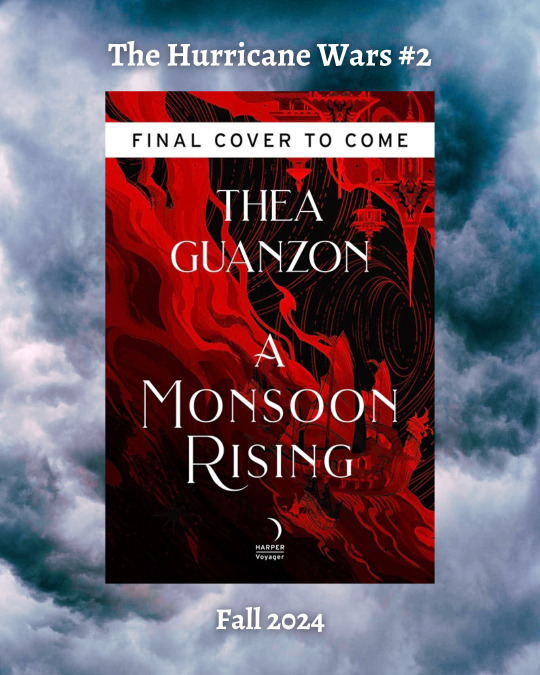
THE HURRICANE WARS took the world by storm, and now NEW YORK TIMES bestselling author Thea Guanzon returns with this steamy and action-packed sequel, following reluctant newlyweds Alaric and Talasyn as they navigate their burgeoning feelings among political schemes and magical threats.
After a lifetime of war, Alaric and Talasyn were thrust into an alliance between their homelands that was supposed to bring peace; however, being married to their sworn foe feels far from peaceful. Now Talasyn must play the part of Alaric’s willing empress while her allies secretly plot to overthrow his reign. But the longer the couple are forced together, the harder it becomes for her to deny—he isn’t the monster she thought he was. When the time comes to act, can she trust him, or must she ignore her feelings for the sake of so many others?
As the master of the Shadowforged Legion, Alaric has trained for battle all his life, but marrying a Lightweaver might be his most dangerous challenge yet. With tensions between nations churning, he needs to focus on the greater threat—the Moonless Dark, a cataclysmic magical event that could devour everything. Only he and Talasyn can stop it, with a powerful merging of light and shadow that they alone can create together. But saving their world from this disaster is a mere preface to his father’s more sinister schemes, and his wife is a burning flame in the darkness, tempting both his loyalties and his desires.
The Hurricane Wars aren’t over. It’s time to choose what—and who—to fight for. The world holds its breath amidst a whirlwind of new magic and old secrets, and two hearts circle each other like predators in the eye of the storm.
Out October 22, 2024 from Harper Voyager US (PREORDER)
Out October 24, 2024 from Harper Voyager UK (PREORDER)
161 notes
·
View notes